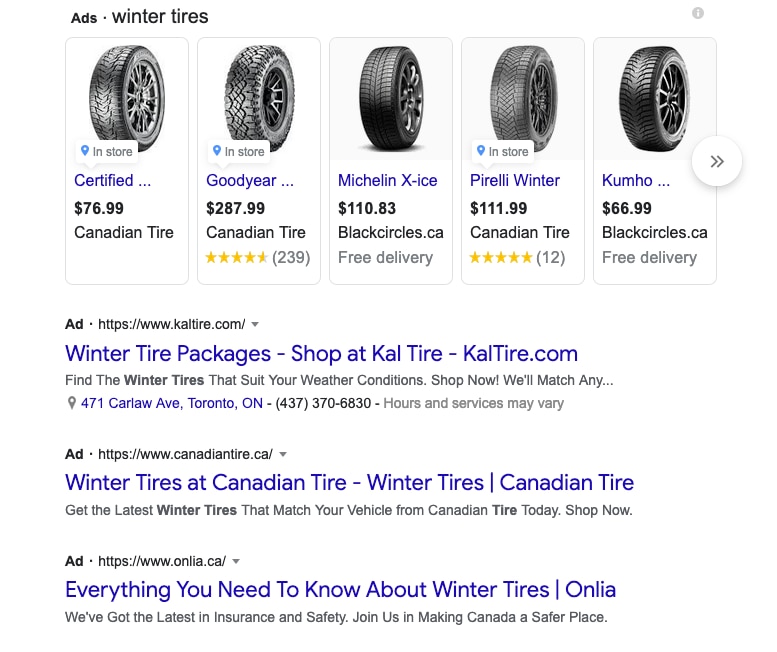Pay-per-click advertising example
For example, Imran runs a kitchen appliance store. Suppose he wants to run a PPC campaign surrounding his new, high-end appliances he just added to his inventory. Imran must first create his ad groups. A campaign can have one or multiple ad groups- these are the topics your pay-per-click campaign needs to hit. Imran decides to make two ad groups- one for high-end refrigerators and the other for high-end stoves and ovens.
Within each ad group are keywords. Keywords are specifically chosen words that are relevant to your ad content. Therefore, when Imran chooses his keywords, he will want to pick ones that apply to his refrigerator ad and a different set relevant to his stove and oven ad. State-of-the-art refrigerators, high-quality fridges, stainless steel refrigerators are all keywords Imran can use for his one ad group.
Once the keywords are chosen, an advertiser will need to create ad text. Ad text is the written content of your ad, including the relevant keywords. The ad text should contain a link that will take potential customers to your business’ specific landing page.
Every PPC campaign should have a landing page on its website connected to the paid ad through its keywords and text. Users can click through the ad to the landing page to complete the purchase. Imran will need to create specific landing pages that use the same keywords as his ads to bring users to his site.




